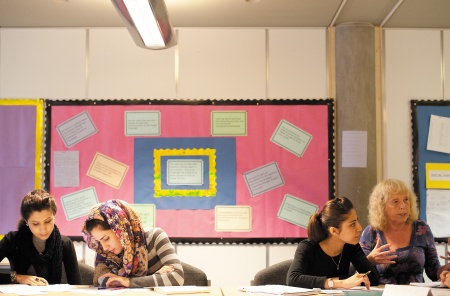
April 11, 2014, by michaelgroves
What’s in a word?
Dave Willis, a pioneer of Task Based Learning in Language teaching, wrote “Fluent language use depends not simply on knowing a lot of words, but also on knowing a lot about a lot of words” (as quoted recently by @scottthornbury)
What did he mean? Well let’s take the word “analyse” What do you need to know, as a learner of English?
- That it means examine something in critical detail
- That the stress is one the first syllable ANalyse
- Americans (and increasing numbers of other countries) spell it Analyze. British English purists will insist on analyse
- That the process is called analysis
- That it is a formal/neutral word
- That the person is an analyst, but that people generally define this, as in systems analyst. Otherwise, people will often think it means psychoanalyst
- That the adjective is analytical, and the adverb is analytically
- That in academic English it goes with adjectives like strong, flawed, original, extensive and detailed , but not with ones like big, bad, wrong or heavy
- That phrases like In the final analysis and analytically speaking are common
- On the first analysis sounds as if it should be common, but isn’t
- The stress pattern is different between ANalyse, anALysis and analYTical
- That it isn’t the same as calculate, investigate or examine, despite what MS Word might give as synonyms
- Painstaking analysis doesn’t hurt (usually)
You probably don’t need to know the history of the word, unless that sort of thing interests you.
Analysis is quite a simple word, because it really only has one meaning. However, a word like “contract” can have three: a binding agreement; to get smaller and to catch a disease, each of which needs the same level of word knowledge as above.
Therefore, I feel, for learners of English, it is important to remember that “I know what this word means” is not enough. And for those who are assessing work done when English is not a student’s first language, it is important to remember the achievement of already knowing the amount that they know- even if it there is still some way to go.
Check ozdic.com for more about this
-
Post a comment
